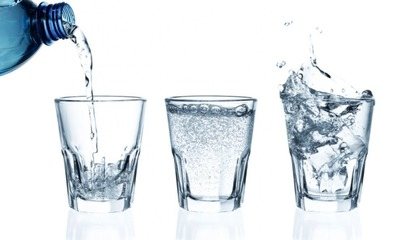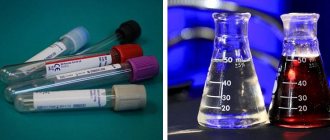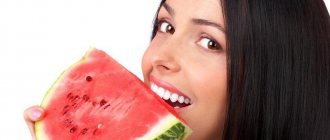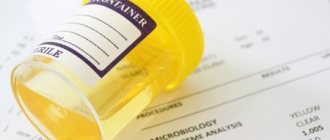Do's and Don'ts before a general blood test
Drink: Drink water in the usual amount, and for children you can even increase the portion a couple of hours before donating blood. This will reduce the viscosity of the blood and make the collection easier. Avoid sugary drinks and alcohol, alcohol affects the number of white blood cells and is eliminated from the body in only three days.
Eat: Eat your last meal 8 hours before your test. It is best to have dinner and come to the laboratory in the morning on an empty stomach. You should especially avoid eating fatty foods, as they can lead to chylosis, which will make the sample completely unsuitable for research.
Exercise: It is advisable to avoid really hard workouts and a lot of stress the day before the blood test. A bathhouse is contraindicated, as is swimming in an ice hole; all this will affect the final results.
Which one is allowed?
Doctors allow the following types of drinking before the test:
- purified still water;
- compote;
- weak tea.
Reference! It is prohibited to consume any water or other drink that contains preservatives, dyes, chemical additives, or pigments.
These include:
- concentrated juice (beets, carrots),
- soda,
- lemonade,
- coffee,
- energy.
Any type of water obtained naturally (without chemicals) is not prohibited before being analyzed. If it contains a large amount of pigments, they can leak into the urine. This will change its color.
Then it is impossible to determine the result with accuracy. For example, drinking beetroot juice makes it reddish. The same effect occurs with gross hematuria (excretion of red blood cells or blood into the urine).
Carefully! Alcohol is prohibited before any laboratory analysis.
Dos and don’ts before biochemical tests: general biochemistry, cholesterol, glucose
Drink: Drink as usual, but make sure it's water and not soda or alcohol. It is advisable to eliminate coffee and tea one day before.
There are: before a biochemical blood test there are most restrictions on food. The day before donating blood, it is necessary to exclude from the menu fatty foods (it will affect cholesterol levels), sweets in large quantities, even grapes (the biochemical complex includes glucose measurement), purine-rich foods such as meat, liver, legumes (so as not to mislead the doctor). misconception of high uric acid levels). It is necessary to take the test on an empty stomach; you can have your last meal 8 hours before the procedure.
Loads: Peak loads are still not recommended.
Medications: All unnecessary medications must be eliminated the week before blood donation. But if you have medications prescribed by your doctor that cannot be canceled, do not be upset, indicate the names and dosages on the prescription itself.
Even if you were inattentive and had a heavy breakfast on the day of the test, don’t be upset. Instead of going to donate blood and pay for results that may be incorrect, re-register the next morning with Lab4U. Just 3 clicks and any of our medical centers will be waiting for you at a convenient time. And a 50% discount on all biochemical studies will relieve you of stress!
When should you stop?
To ensure that filtration occurs normally and there is no excessive increase in water relative to soluble substances, it is recommended to stop drinking liquid 1 hour before the analysis.
Moreover, the last volume drunk should be no more than 200 ml. These are the data recommended for emergency urine collection.
To get the best results and eliminate the possibility of unreliable data, it is recommended to take the morning portion. The last intake of H2O should occur in the evening, before bed . Then the urine will be most concentrated.
Do's and don'ts before hormone tests: TSH, testosterone, hCG
Drink: There are no restrictions on water.
Yes: like all other tests, it is advisable to take hormones in the morning on an empty stomach. Eating a large breakfast may affect your thyroid hormone levels or make your sample unusable for testing.
Exercise: Human hormones react to physical activity and stress very noticeably. Your testosterone production may change from training the day before; stress affects cortisol and TSH levels. Therefore, if you are donating blood for thyroid hormone tests, we advise you to avoid nerves and fuss as much as possible on the morning of the test and the day before. In the case of tests for sex hormones, exclude training, baths, and try to sleep for a sufficient amount of time.
Medicines: for analysis of TSH, T3, T4, it is better to exclude iodine preparations 2-3 days before donating blood; we recommend checking your multivitamins, they may contain iodine.
Other: do not forget that women need to take tests for sex hormones on certain days of the cycle; it is usually recommended to take tests on days 3-5 or 19-21 of the menstrual cycle, depending on the purpose of the study, unless the treating doctor has prescribed other dates.
Is it possible to drink coffee before a general urine test?
As a rule, a general urine test examines indicators that are not greatly affected by caffeine. However, the effect may be indirect, for example causing a color change. It is advisable to refrain from drinking coffee before donating urine, especially since it is usually collected at home, and you just need to remember to collect the urine first, and then you can drink coffee.
If you donate urine and blood on the same day, it is advisable to abstain from coffee until you pass all the tests. Caffeine can affect blood test results!
Do's and don'ts before testing for infections: PCR and antibodies
Tests for infections can be either the determination of antibodies in blood serum, in which case all general preparation rules apply to blood donation, or the determination of infections using the PCR method, the material for which is taken using a urogenital smear.
Drink: There is no need to increase the amount of water you drink, drink as much as you feel thirsty. You should especially not drink alcohol before testing for infections; it can serve as a provocation.
Yes: food has a lesser effect on the results of tests to detect infections. However, try to eat no later than 4-5 hours before donating blood and still avoid fatty foods.
Exercise: if you are donating blood, cancel training, baths, saunas the day before the procedure. In the case of a urogenital smear, this is not so important.
Medicines: you definitely risk getting an unreliable test result for infections if you start taking antibiotics before the test! Be careful, if treatment has already begun, identifying infections will be difficult! With the rest of the medications, everything is as usual - it is better to cancel it, if it is impossible to cancel it, indicate the names and doses on the directions.
Other: a urogenital smear must be taken by a doctor, so be sure to make an appointment for the procedure at a specific time in advance. Men are advised not to urinate for 1.5-2 hours before taking material from the urethra. It is unacceptable to take material from women during menstruation and within 3 days after their end.
Tests for hormones and infections can be expensive, especially if you take more than one test, more than once. Lab4U offers you comprehensive examinations with a 50% discount. Hormonal female complex of tests Hormonal male complex of tests STI-12 (complex of tests using PCR for 12 sexually transmitted infections)
Allowed or not before analysis?
For analysis, you need to collect a morning urine sample. It is recommended to do this immediately after sleep, using the average portion that has accumulated overnight. Usually during this period of time a person does not have time to drink water. Important! The sample is collected only in a sterile container purchased from a pharmacy.
There are cases when a person donates urine not early in the morning, but at any time during the day. Then the result is affected by the water you drink. If a person consumes it in reasonable quantities, this will not affect the analysis.

But it is recommended to adhere to the following rules:
- the last fluid intake should be at least 1 hour before;
- drink water moderately, no more than 100-200 ml at a time;
- It is prohibited to drink other types of drinks besides water that contain added dyes, preservatives, or carbon dioxide.
By the color of the urine, the doctor will immediately understand when it was collected. If it is morning time, it is yellow with a dark tint. When collected during the day, it becomes lighter as the patient drinks water. That is, the concentration of substances that the kidneys filter decreases.
What and how can affect the test results?
Why do we insist so much on eliminating food and especially fatty foods before donating blood? If this rule is not followed, your sample may not be suitable for analysis due to chylosis. This is a condition when the content of triglycerides (fat particles) in the blood serum is exceeded, it becomes cloudy and cannot be examined.
Alcohol affects so many blood parameters that it would be difficult to list them. This includes blood glucose, the content of red blood cells, the content of lactate in the blood, and uric acid. It’s best to just remember that 2-3 days before the test you should give up even low-alcohol drinks.
Following these simple rules will help you make an accurate diagnosis and avoid repeated visits to the treatment room.
Is it possible to donate urine if you have already drunk coffee?
Warn your doctor about this before you get tested. In general analysis, coffee rarely affects anything, but, nevertheless, risks are possible and should be kept in mind. When analyzing hormones, caffeine causes them to increase. And even one cup of your favorite drink can distort the picture, make the indicators frighteningly high, or not show the real picture, so the doctor will not see the disease.
Do not hide from your doctor if you have drunk or eaten something prohibited. The analysis may need to be rescheduled, but this will show the exact condition of the body.
Taking medications
A general urine test provides a lot of important information about the patient’s health, but alcohol negates the effectiveness of this method. Due to the fact that the load on the kidneys increases, the body loses a lot of fluid, which means the level of the main components in the urine will exceed the norm.
Laboratory research
As a result, you can get incorrect values for the following indicators:
- the concentration of uric acid will increase;
- the content of lactic acid will increase;
- the presence of glucose is detected;
- The level of triacylglycerides will increase.
In order for the research result to be as accurate as possible, several more rules must be followed:
- Before collecting biomaterial, careful hygiene of the genital organs is necessary;
- urine is collected in a special container with a tight-fitting lid;
- It is advisable to deliver the urine to the laboratory as quickly as possible, since the storage time is no more than 2 hours at room temperature. If this is not possible, the container is placed in the refrigerator, where the biomaterial will be stored for 24 hours. Longer storage will lead to changes in the properties of the liquid and the development of bacteria.
The time it takes for urine to be completely cleared of ethanol breakdown products depends on many factors, including:
- quantity, quality and strength of the drink;
- calorie content and amount of food eaten and liquid drunk (not alcohol);
- gender, age, height and weight of a person;
- health status, including the presence of chronic diseases;
- individual characteristics of the body, in particular metabolic rate.
Alcohol elimination table
It is also necessary to take into account that alcohol enters the urine much later than, for example, the blood. And even after the blood has cleared and the intoxication has passed, traces of alcohol can remain in the urine for several days. That is why it is not recommended to drink alcohol 2-3 days before the urine test.
Usually the patient is warned not to drink alcohol the day before the test. But in order to get the most accurate results of a urine test, experts recommend refraining from drinking strong alcoholic beverages 3-4 days before the procedure, and wine and beer 2 days before. During this time, the urine will have time to be almost completely cleared of toxins.
If you need to take urine for analysis on an empty stomach, the doctor will definitely warn you about this in advance. In other cases, there is no need to fast. However, shortly before submitting your urine for analysis, it is worth observing some restrictions regarding the foods that you can eat. The list of undesirables includes:
- confectionery, sweets (chocolate, pastries, jam, marmalade, etc.) - will significantly increase the level of sugar in the urine;
- coloring foods (beets, carrots) will affect the color of urine, which is also assessed during the study;
- products with a strong strong odor (onions, garlic, horseradish, various spices) will change the smell of urine;
- watermelon - can provoke saturation of urine with nitrates;
- marinades, pickles - after these dishes, the presence of phosphates may be observed in the urine.
It is also advisable to limit the consumption of dairy products, fried and smoked foods. It is very important that the diet is as close as possible to the usual, without excesses, but also without artificial starvation. Only in this case will the picture obtained as a result of the study most accurately reflect the true state of the patient’s health.
Urine (urine in Latin) is one of the wastes (excrement) of the human body. Urine is secreted by the kidneys. They release chemical compounds from cells, reabsorption and filtration of blood. As a result of these processes, urine is formed, it is removed from the kidneys into the bladder, and from it generally from the body.
Before taking a urine test, you should not take any medications that change the physical and chemical parameters of urine, color, or smell. If medications were taken as prescribed by a doctor, then stop taking them 12 hours (in other cases 48 hours) before collecting biomaterial. When a doctor has ordered a urine test, the patient must inform him of what medications he is taking and how often.
The use of vitamin-mineral complexes also changes the color and composition of urine. For example, vitamin B12 turns it orange (this is an abnormal color). Ascorbic acid changes the volume of oxalate salts in urine.
Drugs of the nitrofuran group change the color of urine to brown (sometimes rusty), metronidazole to dark, rifampicin to red. And color is a sign of normality or deviation from the norm.
The use of diuretics should be postponed, since after taking them the patient will often go to the toilet, and urine should accumulate in the body for 4 hours (no less).
Alcohol level in analysis
The human body produces ethanol on its own in very small quantities. Therefore, when determining the amount of ethanol supplied from outside, small errors are allowed. The most commonly used classification is:
- 0.00 – 0.03% – the person most likely did not drink alcohol in the last few days;
- 0.03% or more – the person has consumed alcohol within the last 2 days, and the state of intoxication may still persist.
A urine test can only confirm the fact of drinking alcohol in the recent past. It is incorrect to draw any conclusions about the dose of alcohol taken, as well as the exact time of consumption based on the results, since the error of the study is very high.
The influence of different types of alcohol and water
Regardless of the type of alcoholic drink, the ethanol contained in it penetrates all systems and organs, negatively affecting their functioning. Alcohol remains in urine for a long time, changing its chemical composition. The stronger the alcohol, the more aggressively it affects the body and the longer it remains in urine, changing its chemical composition. The time it takes to completely cleanse urine of toxic substances directly depends on the strength of the drink you drink.
Strong alcohol
Strong alcoholic drinks include: vodka, cognac, whiskey, rum, liqueurs and tinctures. If you drink even a small amount of strong alcohol, it will cause increased stress on all organs, including the kidneys. In an effort to remove toxic substances as quickly as possible, the excretory system begins to work to the limit, which leads to disruption of the water-electrolyte and acid-base balance in the body.
Not only toxins are washed out with the liquid, but also useful minerals and vitamins. So, strong drinks drunk before donating urine will affect the quality of the urine, and therefore the test results.
Due to its low strength, many consider beer a harmless drink that can be drunk before a urine test, since it is unlikely to seriously affect the result.
This is an erroneous opinion, since the amount of alcohol contained in a foamy drink is quite enough for the indicators obtained as a result of the study to be incorrect. In addition, beer is a fairly strong diuretic, and it is usually drunk in large quantities. Because of this, the urine will become more concentrated, which will also negatively affect the reliability of the test.
Low alcohol drinks
There are no special restrictions on drinking water before a urine test. You can drink clean drinking water in the same quantities as usual. If you reduce its amount, it will affect the level of minerals in urine. But with other drinks everything is a little different. So, 1-2 days before submitting the biomaterial for research, it is advisable to limit the consumption of the following drinks:
- sweet carbonated water, juices (may affect the glucose level in the urine);
- energy drinks, mineral waters, including medicinal ones (the kidneys will filter out chemical additives, as well as excess minerals that end up in the urine);
- drinks containing chemical dyes.
Also, for several hours before donating urine, you should not drink strong tea or coffee, which will affect the color and composition of the urine.
What can you eat before donating urine?
Before taking a urine test and going to the hospital, almost everything is allowed, except for foods that color the urine and give it a specific smell. It is recommended to limit your diet and not overeat so that you do not have to take the test again. You can drink mineral or distilled water.
Many scientists and patients advise eating lemon or pomegranate . These fruits help normalize the composition of urine, even if the person ate sweet, fatty or spicy food the day before.










